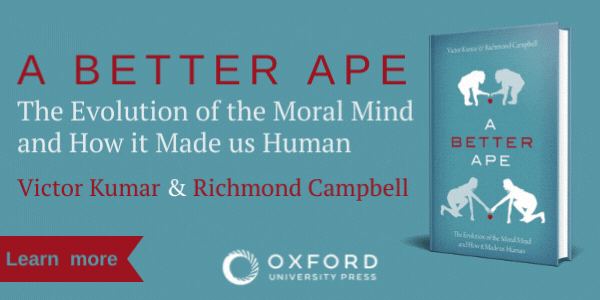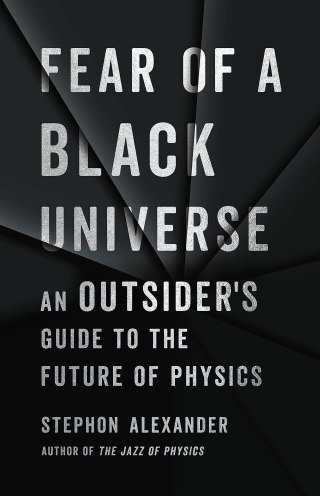If this is right and there are major downsides to a competitive atmosphere in philosophy, what might we do to make competition a less dominant feature of the practice of academic philosophy?

But note that being nicer to each other doesn’t fully resolve the problems flagged with competition above. Even where comments are delivered in a polite manner, alongside smiles and compliments about the paper, the competitive element remains. To borrow some words from Joseph Trullinger, it just makes it more of a gentlemanly duel as opposed to an unsportsmanlike war. The notion that one stands up in front of an audience and defends one’s view in an attempt for it to ‘win out’ amid the criticisms of the crowd is still very much alive.
“Departments of Cognitive Poker”? Competitiveness and Philosophy
by Christina Easton
If there is a competitive atmosphere in philosophy, why might it be problematic?
Commenting on this in her own memoir The Owl of Minerva (2007), Mary Midgley criticises this “competitive conception of philosophy”, joking that (since, in her view, it might be detrimental to the core enterprise of philosophy) these activities might be practised apart from philosophy, in “Departments of Cognitive Poker, or Institutes of One-Upmanship”.
When combative dialogue in philosophy gets highlighted as problematic, note that it’s not usually the adversarial method itself that is ‘under attack’. Given the distinct subject matter of philosophy as addressing particularly intractable questions that are often unresolved by empirical evidence, presenting arguments and having people identify ways that such arguments go wrong is part and parcel of what it is to do philosophy. Rather, the issue is more with the manner in which this feedback on arguments is given. Counter-arguments are often presented in a nit-picking, competitive manner, so as to give the impression that the speaker is stupid and the interlocuter superior. Post-presentation Q&A can involve relentless attacks on the case just presented by the speaker, with the primary goal of audience members being to find flaws—any flaws, however minor—in what was just said, in order to prove that the speaker is wrong. These “competitive attacks are unending” (Friedman); the back and forth of argument is expected to continue until one member ‘surrenders’, at which point, someone has ‘won’ and someone has ‘lost’.
We might also endeavour to place less emphasis on the need to ‘pick a side’. When we ask undergraduates to state their thesis as they introduce their paper, we could emphasise that this thesis need not be that a particular side of the debate has won out. Instead, it could identify which argument is the biggest threat to a theory, for example. When we review for journals, we could be more open to papers that don’t defend a particular point of view, but instead shed new light on an issue and acknowledge its complexity, before raising some questions that arise from the reflections.
Is philosophy an especially competitive discipline? How? Is its competitiveness a problem? If so, what might we do about it? In the following guest post, Christina Easton, British Academy Postdoctoral Fellow at the University of Warwick, takes up these and related questions.
In his memoir The Making of a Philosopher (2003), Colin McGinn describes his experiences of philosophical debate as involving
To what extent is this “competitive conception of philosophy” still dominant today? And what place ought competition to occupy in philosophy? (These questions are tackled in a new, open access Special Issue on the topic in the Journal of Philosophy in Schools.)
First, there is Midgley’s worry that competitive behaviours might get in the way of what philosophy is really about. If we think that philosophy is a search for wisdom or the pursuit of truth, then we might worry that research seminars dominated by verbal smackdowns between competing individuals gets in the way of this. Competition encourages epistemically vicious modes of conduct; for example, grandstanding and one-upmanship can draw focus away from the search for truth and onto the individuals making arguments.
Second, and as I argue in a recently published open access article, competitive norms might be bad for philosophy by contributing to a lack of gender diversity within the discipline. One major reason is because competitive norms may lead to women performing less well in philosophy than they might otherwise do. Research indicates that performing a task as part of a competition tends to make men perform better than they would have done had the task been non-competitive, whereas it tends to make women perform worse. Women also tend to have more negative attitudes towards competition—partly mediated by their tendency towards lower confidence (something which I think is, independently, an explanatory factor in the gender gap in philosophy). If women tend to enjoy competition less, then this might (for some women) lead to them viewing research talk Q&As as ordeals to be endured rather than as an enjoyable game or contest.
There is one obvious sense in which philosophy is highly competitive, and that’s in the sense in which academia, in general, is highly competitive: we compete against each other for scholarships, jobs, funding, etc. It may be that philosophy stands out as more competitive than other disciplines here, due to factors such as lesser availability of funding and more people looking exclusively for academic jobs following a PhD. But what about the practice of doing academic philosophy? Do the norms and practices of philosophy stand out from other disciplines as being especially competitive?
Yet even if the research is wrong and in fact these gender differences do not exist, stereotypes that say that women are non-competitive can have pernicious effects. First, they may lead to ‘backlash effects’ against women who exhibit counter-stereotypical traits. Women who enjoy and show skill at “intellectual blood-sport”—and maybe even engage in some “showing-off”—may be the subject of hostility, resulting in fewer opportunities and less enjoyment of participation in philosophy. Second, competitive norms in philosophy combined with gender stereotypes relating to competitiveness may result in people developing conflicting schemas (sets of implicit and often unarticulated expectations) for ‘philosopher’ and ‘women’. This may contribute to women feeling that they do not belong in the discipline and consequently choosing not to continue (or begin) philosophy.
I would be very interested to hear in the comments what people think. Does philosophy stand out in academia as having a competitive atmosphere? If yes, is this a problem? I’ve focused here on competition’s downsides, but are there upsides to competition and competitive atmospheres that might mean that overall, it’s a good thing? If it is problematic, what might we do to improve things?
One increasingly well-discussed way in which philosophy might stand out as being competitive is with its focus on combative dialogue. This is highlighted by the language of competition and fighting that we use to describe what goes on at, for example, Q&As following research talks. We “attack, target and demolish an opponent” (Haslanger). Arguments suffer from “fatal flaws” and get “shot down” by counter-arguments (Rooney).
On this last point we can take a lesson from Elizabeth Anscombe, about whom Bernard Williams recalled:
she impressed upon one that being clever wasn’t enough. Oxford philosophy, and this is still true to a certain extent, had a great tendency to be clever. …there was a lot of competitive dialectical exchange, and showing that other people were wrong. I was quite good at all that. But Elisabeth conveyed a strong sense of the seriousness of the subject, and how the subject was difficult in ways that simply being clever wasn’t going to get round.
Perhaps if, like Anscombe, we were to take philosophy a bit more seriously, as a genuine attempt to try and better our understanding, then we wouldn’t be so inclined to slip into “rough play”, for philosophy wouldn’t be a game at all. If it’s about trying to dig deeper into important but difficult questions, then there’s no need to ‘own’ an opinion and stick by it. Instead, we should happily relinquish a view when we find that the weight of argument takes us elsewhere, and we should not feel ashamed at that. If more of us could have that attitude—something that unfortunately modern academic practices pushes against—that would reduce the emphasis on individual competition and individual accomplishment.
Is that competitive, ‘duelling’ element just inherent to philosophy? After all, examining arguments is key to philosophy (at least, in its dominant practice in today’s academy), and arguments can be won or lost. Perhaps then it is the “pulsing egos” attached to the arguments that are the problem. It’s our tendency to own an opinion or argument, to see them as things to be defended at all costs on pain of one’s honour, that is problematic. If instead, we re-focused on our shared mission of uncovering truth or wisdom, then that competitive element might lessen—we’d delight in being proved wrong.
[Sybil Andrews, “Sledgehammers”]
a clashing of analytically honed intellects, with pulsing egos attached to them … Philosophical discussion can be a kind of intellectual blood-sport, in which egos get bruised and buckled, even impaled… Plain showing-off is also a feature of philosophical life.

One thing we might do is to improve the manner in which we engage in dialogue with each other, for example by working to eliminate norms where it’s acceptable to relentlessly attack a presenter or to nit-pick for the sake of proving someone wrong. (This might be especially helpful for the gender diversity issue just discussed, since research indicates that the gender gap is largest in competitions that reward stereotypically male traits such as aggression.) In this area, philosophy has already improved: people are less rude, and dominating a discussion tends to be frowned upon. As Helen Beebee writes in her recent assessment of what’s changed in philosophy in the last decade, “People are just nicer to each other”.
One practical means towards this change might be to use more group-orientated language when engaging in dialogue. For example: “Perhaps it might help us work this out if we attended to…” Or: “In light of X, we might need to revise our thinking on Y…”





